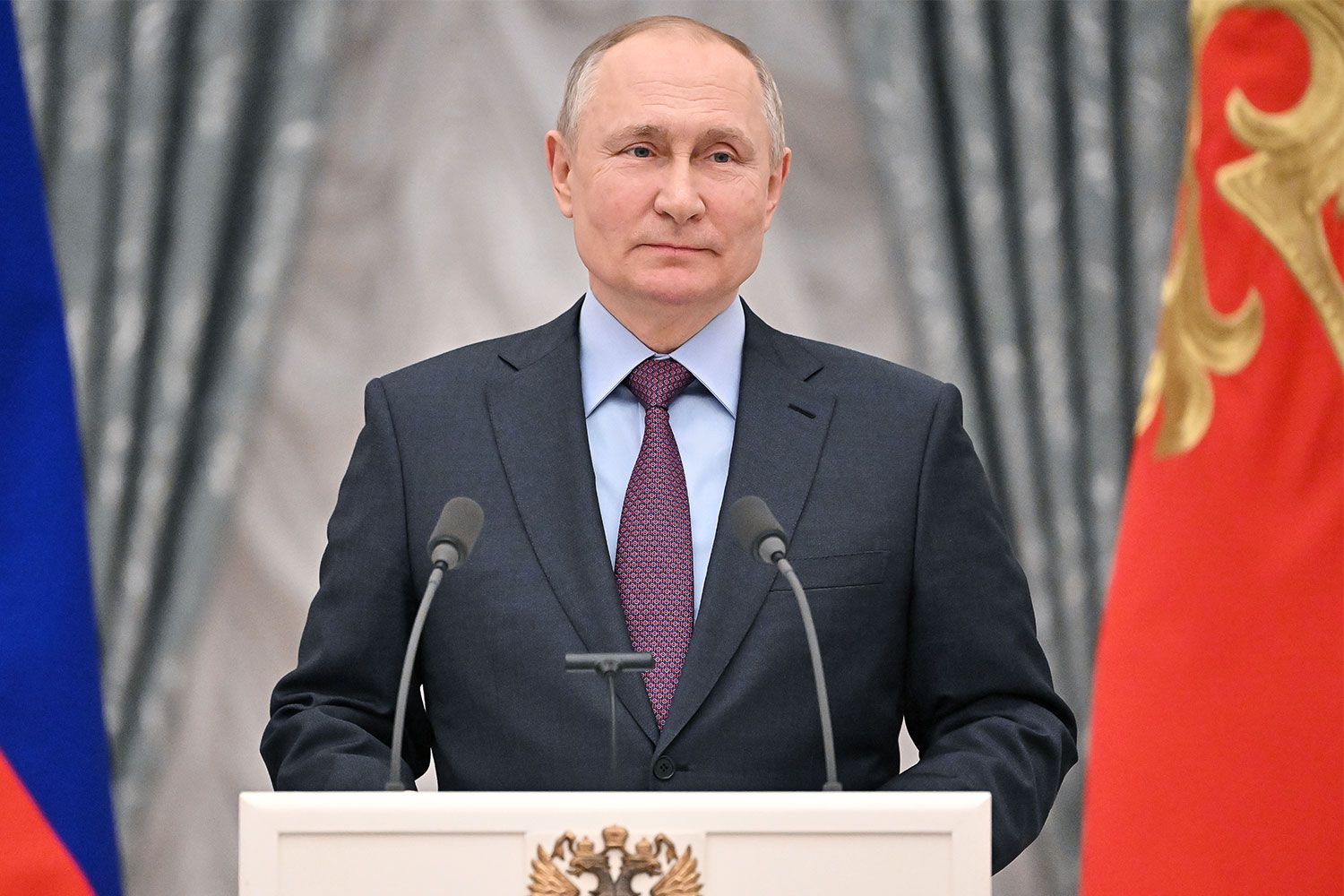/Putin-001-cbcef2c6b83b44d3bcdad55e28d6636e.jpg)
Russian President Vladimir Putin on Wednesday called for a partial mobilization of Russian citizens amid his ongoing invasion of Ukraine, making veiled threats that have raised fears the autocrat could turn to nuclear weapons.
“When the territorial integrity of our country is threatened, we will certainly use all the means at our disposal to protect Russia and our people. It’s not a bluff,” Putin said, per a Reuters report.
Reuters reports that flights out of Russia sold out quickly following Putin’s announcement, which marked the county’s first military mobilization since World War II.
CNN reports that the mobilization will see Russian citizens in the military reserve or those with military experience being called to active duty. While it is unclear exactly who will be impacted, Russian Defense Secretary Sergei Shoigu said 300,000 people will be mobilized, in addition to those soldiers who are currently active.
Elsewhere in his Wednesday remarks, Putin announced a referendum to annex four Ukrainian regions: Luhansk, Donetsk, Zaporizhzhia and Kherson.
Speaking to Reuters, NATO Secretary-General Jens Stoltenberg called Putin’s remarks “dangerous and reckless rhetoric” that demonstrate “that the war is not going according to his plans.”
U.S. ambassador to Ukraine Bridget Brink echoed those claims, writing on Twitter: “Sham referenda and mobilization are signs of weakness, of Russian failure. The United States will never recognize Russia’s claim to purportedly annexed Ukrainian territory, and we will continue to stand with Ukraine for as long as it takes.”
Hours after Putin’s speech, President Joe Biden delivered his own remarks at the United Nations General Assembly, saying: “This war is about extinguishing Ukraine’s right to exist as a state and Ukrainians’ right to exist as a people. That should make your blood run cold.”
Recent reports have claimed that Russian soldiers are suffering from exhaustion and a lack of resources, though U.S. officials have been cautious about suggesting Putin could withdraw from the region.
Asked earlier this month if the recent liberation of key Ukrainian cities or apparent shortcomings on the battlefield mark a turning point in Russia’s invasion, Biden said the question was “unanswerable,” adding: “It’s clear the Ukrainians have made significant progress, but I think it’s going to be a long haul.”
John Kirby, strategic communications coordinator for the National Security Council, told reporters this month that Russia is still viewed as an “acute threat” by the Department of Defense.
“They clearly still have a military capable of inflicting great damage and casualties. And we’ve seen that, sadly, to some effect in Ukraine,” he said. “It’s still a very large and very powerful military, and Mr. Putin still has an awful lot of military capacity left at his disposal — not just to be used in Ukraine, but potentially elsewhere.”
Never miss a story — sign up for PEOPLE’s free daily newsletter to stay up-to-date on the best of what PEOPLE has to offer.
Russia’s attack on Ukraine continues after the country invaded in late February, with forces moving from the north, south and east.
Details of the attack and the fighting have changed by the day in what marked the first major land conflict in Europe in decades — and hundreds have been reported dead or wounded, including children.
Putin has insisted Ukraine has historic ties to Russia and he is acting in the interest of so-called “peacekeeping.”
Linda Thomas-Greenfield, the U.S. Ambassador to the United Nations, said earlier this year that Putin was willing to use “whatever tools he can” in escalating his invasion of Ukraine.
“Putin has tried every means possible to actually put fear in the world in terms of his action, and it just means that we have to ramp up our efforts here at the United Nations and elsewhere to hold him accountable,” Thomas-Greenfield told CBS News’ Margaret Brennan during an interview on Face the Nation in February. “Certainly nothing is off the table with this guy. He’s willing to use whatever tools he can to intimidate Ukrainians and the world.”
The Russian attack on Ukraine is an evolving story, with information changing quickly. Follow PEOPLE’s complete coverage of the war here, including stories from citizens on the ground and ways to help.




